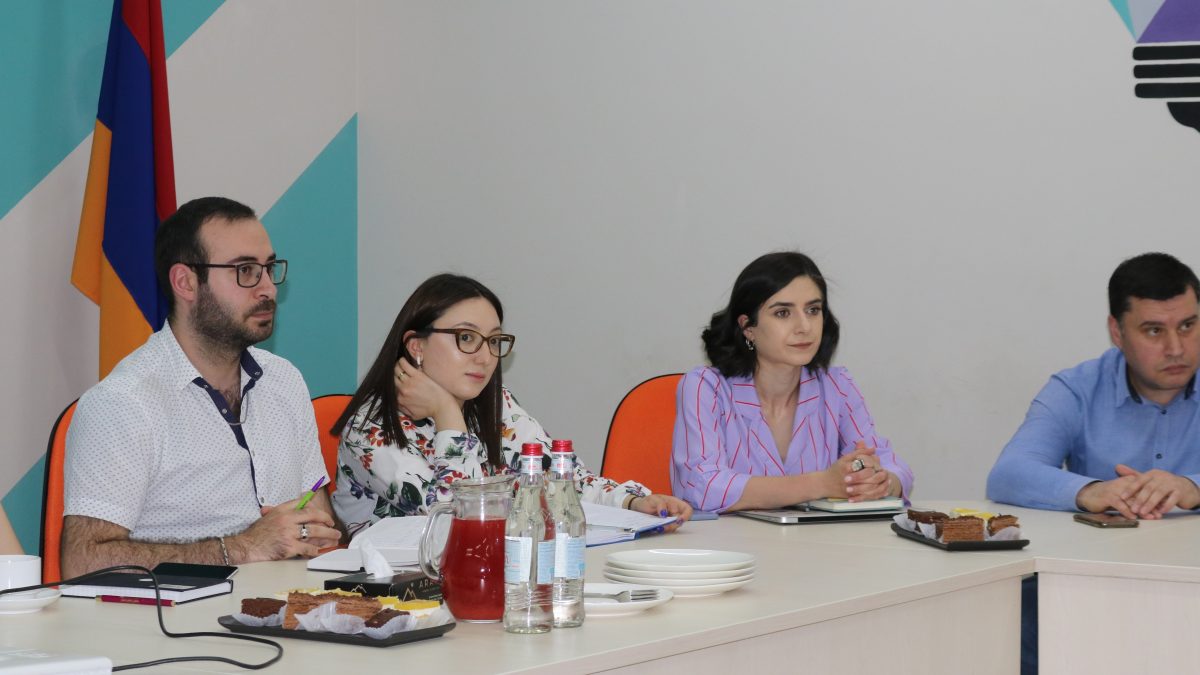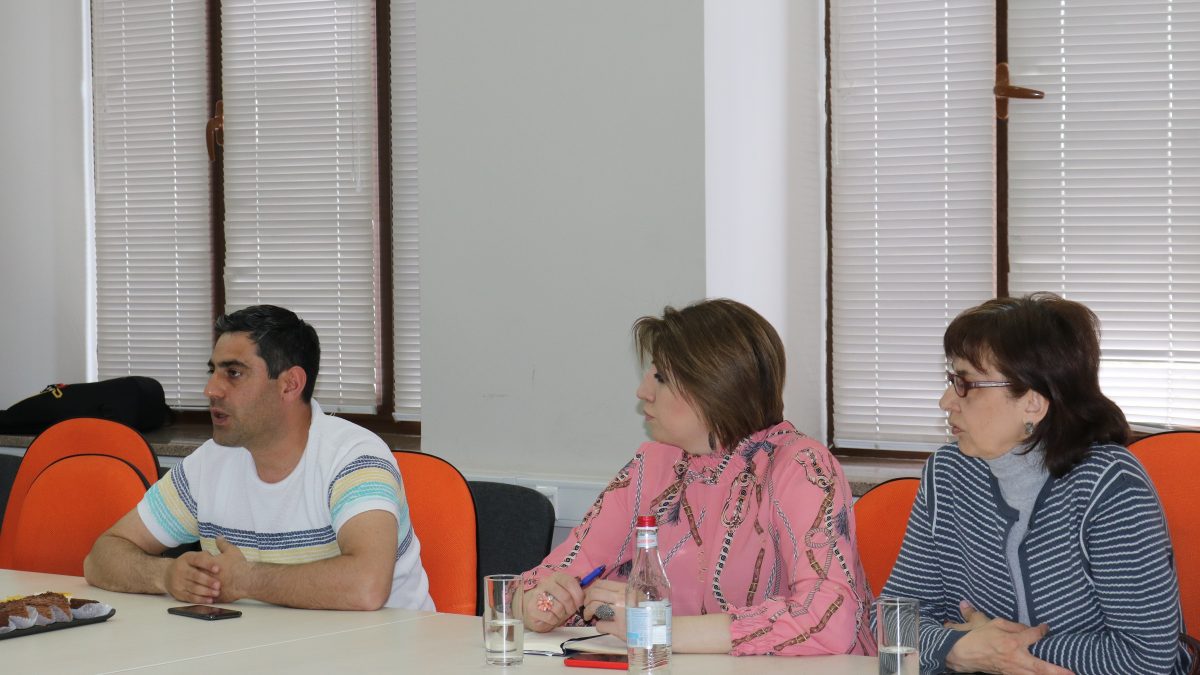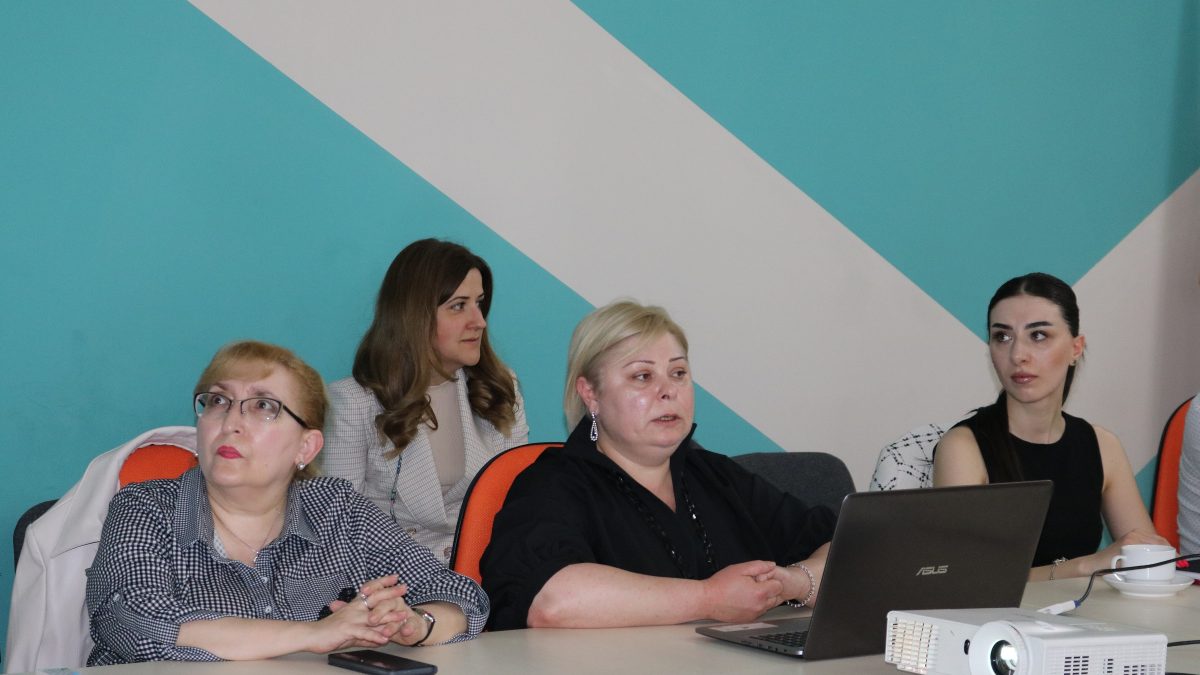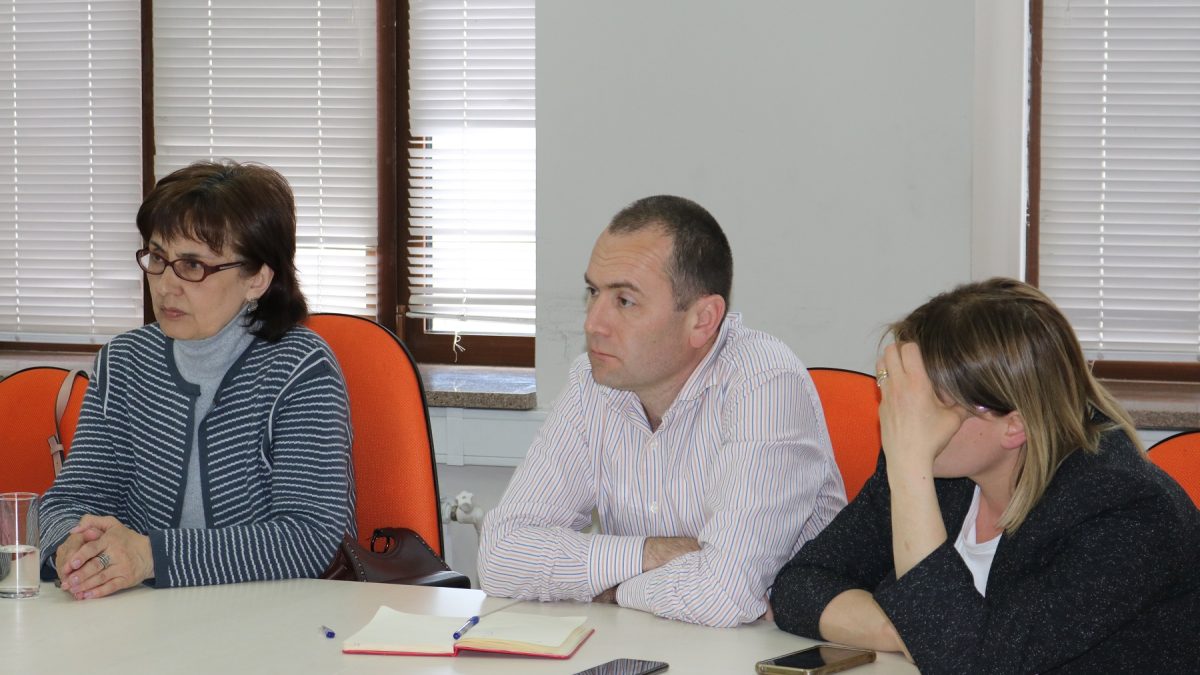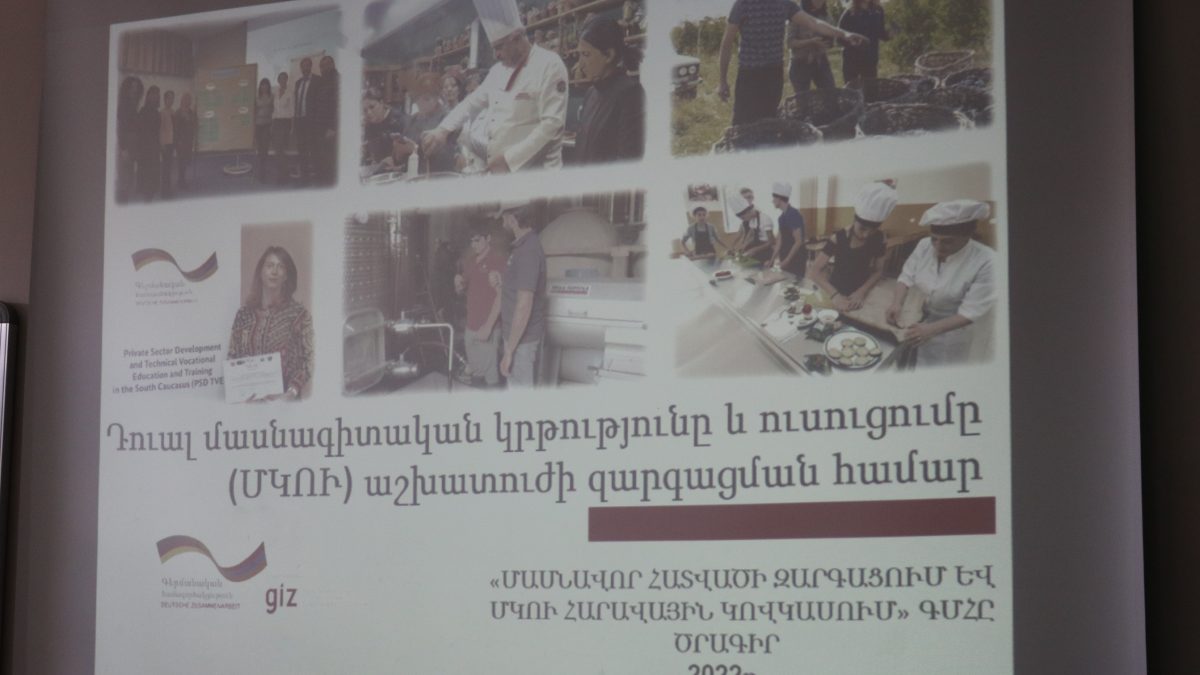EIF is establishing a VET unit in partnership with GIZ
Dual education is a model of close cooperation between educational institutions and the private sector with the purpose of ensuring high quality of training for required professions in colleges. This educational model has been put to work in Armenian regions recently, particularly through the efforts of the Armenian Ministry of Education, Science, Culture and Sports, GIZ, and representatives of high-tech companies.
EIF has started a new project in partnership with GIZ with the main goal of the project being to support the institutional and organizational development of dual VET programs based on labor-market needs, as well as their coordination, implementation and evaluation of the quality and skills recognition in the ICT sector, including representation of the ICT companies in public-private dialogue. A VET unit is in the process of establishment under EIF’s umbrella. The unit will be responsible to communicate the private sector needs to VET institutions and to support their cooperation in providing practical and hands-on learning experience to the engaged students.

In the scope of the project, on April 26 a meeting on dual education took place at the Gyumri Technology Center (GTC). It featured representatives of all key fields and stakeholders in development of dual education, including representatives of GIZ, National Centre for VET Development, Regional State colleges from Gyumri and Vanadzor, Informatics college in Yerevan, companies in the field of high-tech and telecom, and representatives of VTC and GTC.

The participants heard from Ms. Yulia Stakyan, Programme TVET Expert at Private Sector Development and Technical Vocational Education and Training South Caucasus, GIZ. She held a comprehensive presentation introducing the audience to the basics, the purpose, the goals, and the outcomes of dual education. The presentation touched on the experience from both Armenia and the international community.
The discussion revolved around both experience and motivation of the engaged stakeholders.
The chief topics of the talk were assessment of the private sector’s needs in ICT/high tech industry, assessment of the needs of vocational training institutions, and establishment of ties between the mentioned institutions and representatives of the ICT sector.

A crucial part of the meeting was exchange of experience, as the representatives of private and public sectors shared their points of view and spoke about the ways to update the existing dual programs and engage new private companies. For the companies that do not yet apply that concept, it was a good opportunity to hear the first account about how the concept works in practice and to share their expectations with the education sector. As the meeting came to an end, there was a general consensus and readiness among them to not only apply dual education in their activity, but also boost its use nationwide.
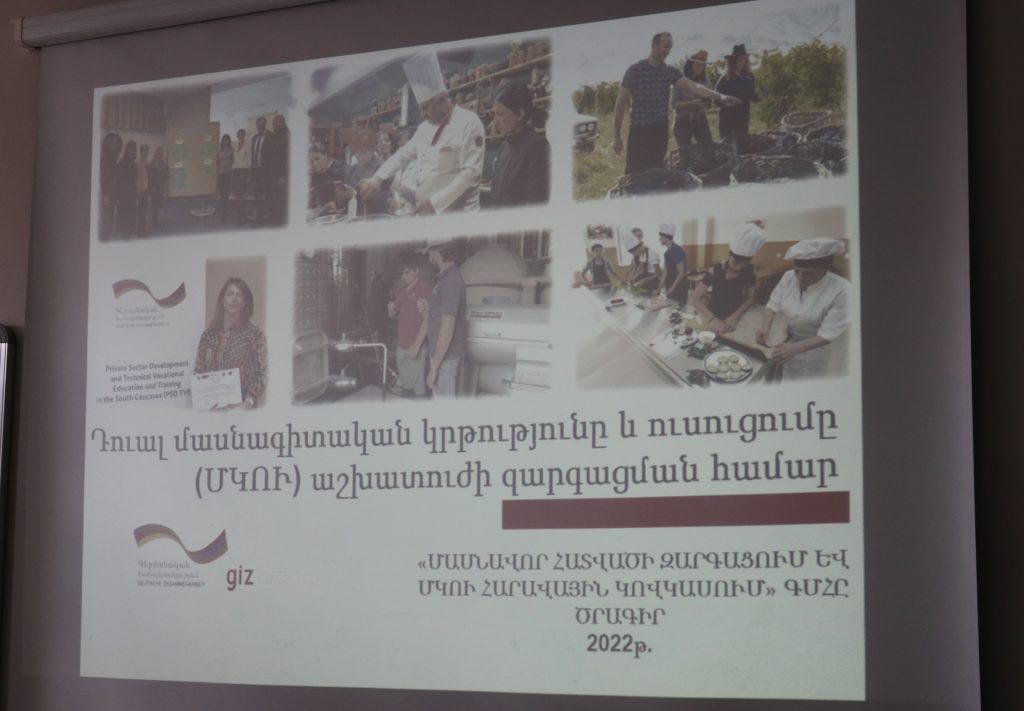
In the quickly changing modern world, it is particularly important for employers to communicate their needs clearly to the sector that teaches and trains specialists. The concept of dual education is a helpful tool for countries to ensure high quality of training of the workers and thus secure high quality of production and economic growth.

